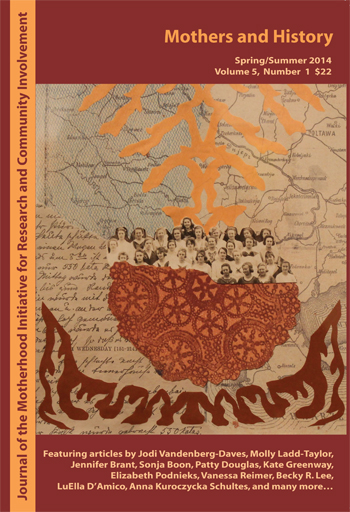“The Other Problem— That of the Woman with Children”: Vera Brittain, Maternal Work, and the Politics of Leaning In
Abstract
Tensions and battles about career and children, which inform our contemporary“mommy wars,” were equally the driving forces for many first-wave feminists who contested traditional conceptions of wifehood and motherhood. One of the most outspoken figures from this past era, and my focus here, is British author, journalist, and pacifist Vera Brittain (1893-1970). I draw on Brittain’s autobiographical trilogy Testament of Youth (1933), Testament of Friendship (1940), and Testament of Experience (1957), as well as on her 1920s and 1930s journalism in order to reveal how she waged “war” (her term) on Victorian womanhood. She unabashedly and relentlessly led the ranks of team “working mother” during the “mommy wars”of her day, showcasing through theory and by example unconventional approaches to middle-class motherhood. She believed, as she lived, that if mothers are to be completely realized and fulfilled individuals, they must engage in meaningful and remunerative occupations. Anne-Marie Slaughter’s 2012 Atlantic article “Why Women Still Can’t Have it All” and Sheryl Sandberg’s Lean In: Women, Work, and the Will to Lead (2013) tap, like Brittain’s work, into the zeitgeist of maternal anxiety, confusion, andchoice, producing wildly divisive reactions by readers and mothers eager to define andquery what it means to be a so-called “modern” and “good” mother. With reference to these contemporary debates, I argue that Brittain remains profoundly relevant to our understanding of twenty-first century maternal politics, and that career-driven mothers today may claim the unfinished business of her feminist agenda as their own.Downloads
Published
How to Cite
Issue
Section
License
All intellectual property in relation to material included on this site belongs to the Motherhood Initiative for Research and Community Involvement (MIRCI). All material on this site is protected by Canadian and international copyright and other intellectual property laws. Users may not do anything which interferes with or breaches those laws or the intellectual property rights in the material. All materials on the Motherhood Initiative for Research and Community Involvement (MIRCI) are copyrighted and all rights are reserved. Any reproduction, modification, publication, transmission, transfer, sale, distribution, display or exploitation of the information, in any form or by any means, or its storage in a retrieval system, whether in whole or in part, without the express written permission of the Motherhood Initiative for Research and Community Involvement (MIRCI) is prohibited. Please contact us for permission to reproduce any of our materials. This site may include third party content which is subject to that third party's terms and conditions of use.


